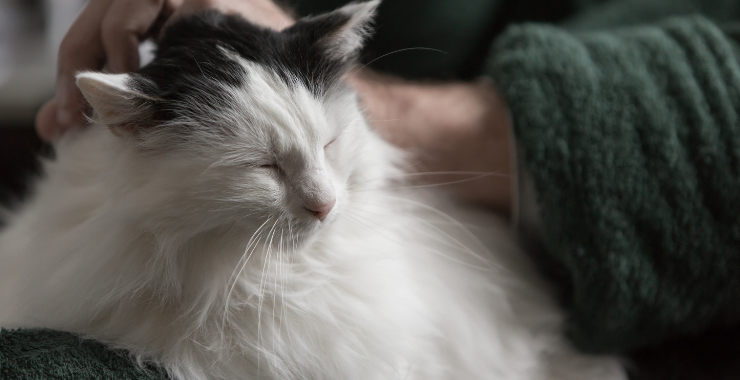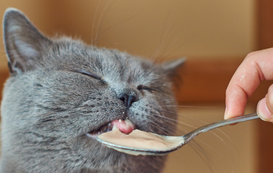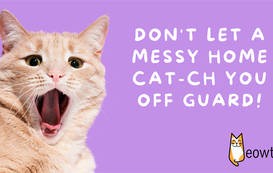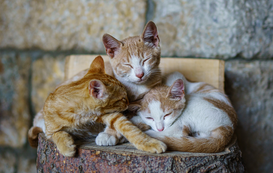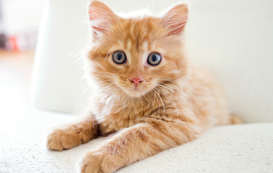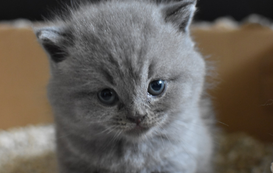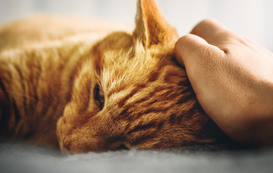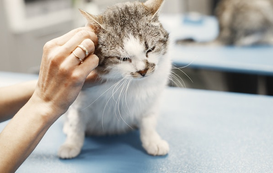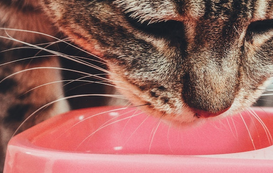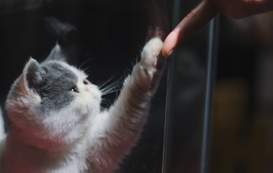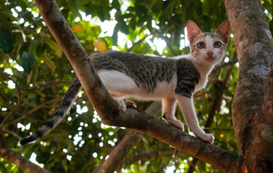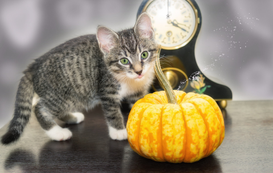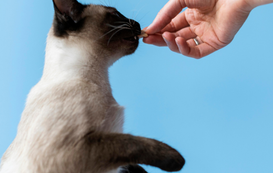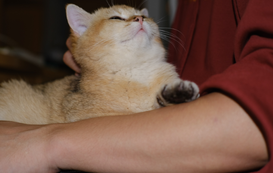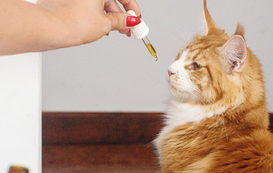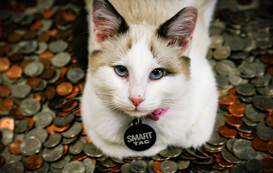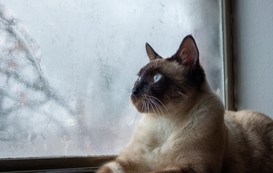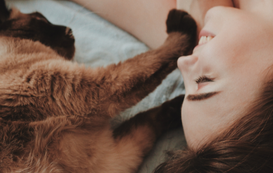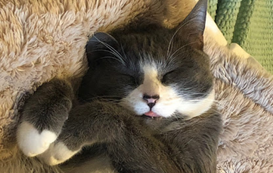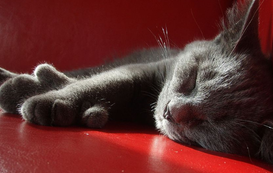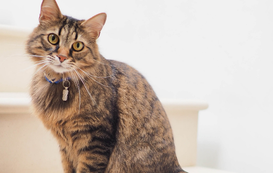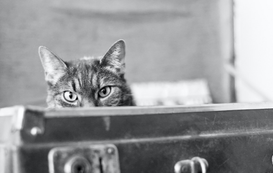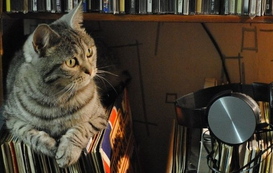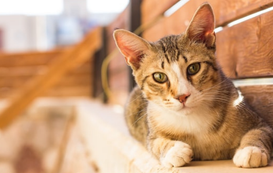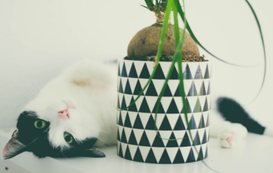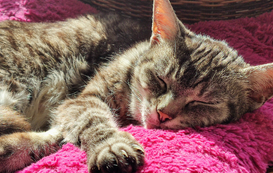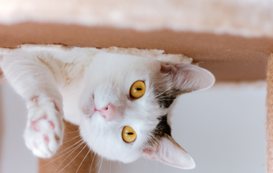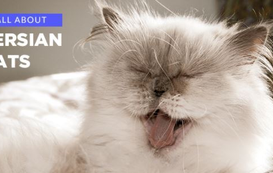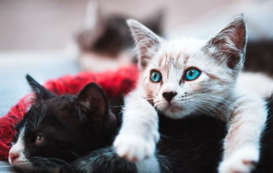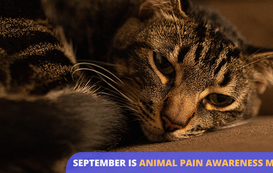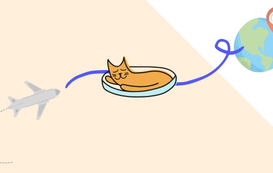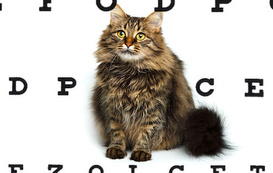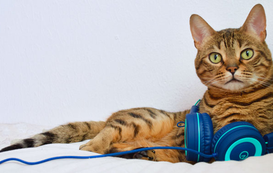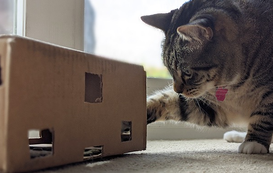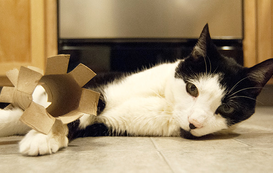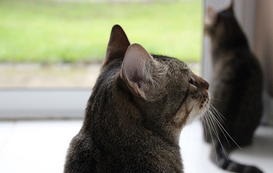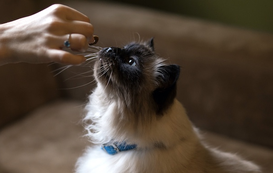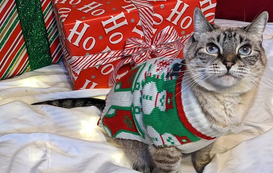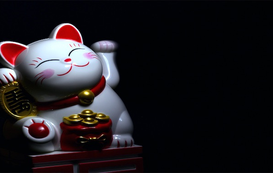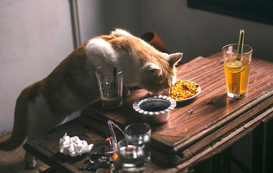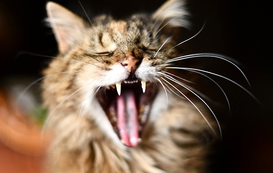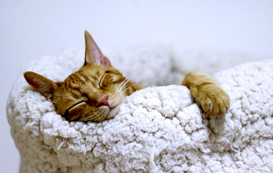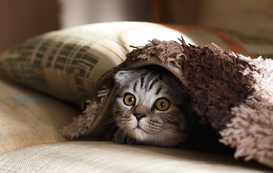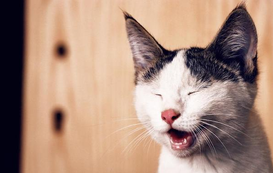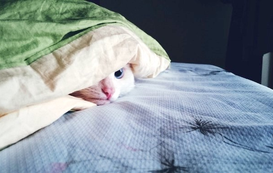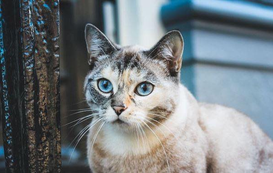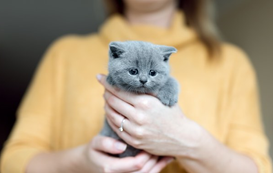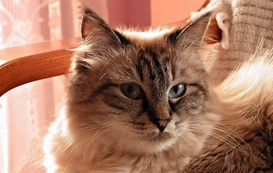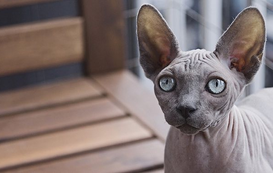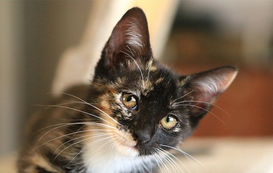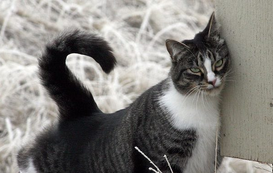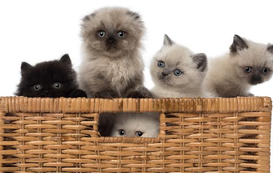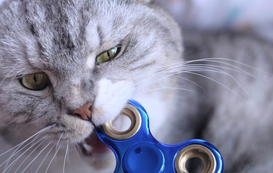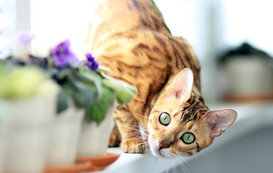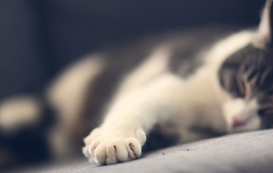Raising a pet is an incredibly rewarding experience. From the moment you adopt your cat, whether they're a kitten or already an adult cat, pet owners want to provide the best quality of life possible. Take time to learn about the changes your cat will experience during different stages of life. Dietary changes, healthcare, and consistent mental stimulation with enriching toys can help your favorite furry friend live a long, healthy life.
What Is the Average Life Expectancy of a Cat?
Healthy domestic cats can easily grow to teenagers, even upwards of 20 years old! That said, the average lifespan varies by many factors, including its environment. Domestic cats that stay indoors have fewer challenges than a cat that lives in the outside world. Purebred cats, like Siamese or Burmese cats, don't necessarily outlive a mixed-breed tabby, but it can make it easier to identify breed-specific health conditions.
Indoor Cats vs. Outdoor Cats
Generally, indoor cats have a longer life expectancy compared to outdoor cats. A house cat's long lifespan is attributed to living in a controlled, safe environment with fewer opportunities for injuries. They're also more likely to receive regular veterinary care and less likely to get into fights with other household pets.
Outdoor cats live a happy life too, but their life expectancy is shorter because the outside environment exposes them to various dangers, such as traffic, natural predators, extreme weather conditions, and illnesses. Outdoor cats may also be more prone to accidents and injuries due to their roaming behavior.
Life Stages of Cats
Cats go through various life stages, each with distinct characteristics and care needs. These life stages can be broken down in different ways, but are often distinguished as follows:
Kitten (0-6 Months)
Kittens are the youngest and most energetic of the life stages. During this phase, they undergo rapid physical development, including teething, and they are known for their playful and curious nature. Proper nutrients in their food and vaccinations can set them up for better future health. Socialization is important for your little creme puff, as it guides positive behavior. Litter box training is important for kittens, and pet owners should be prepared for lots of playtime to keep their little furballs engaged with approved toys and activities.
Junior Cat (7 Months-2 Years)
In the junior stage, cats are less kittenish, but remain active and playful. Their physical growth slows, but at the same time, their curiosity and exploratory behavior grows. Continuing to reinforce positive behaviors and establish house rules is important at this age. By age two, a cat's age is considered to be roughly equivalent to 24 human years.
Adult Cat (3-6 Years)
Cats in their adult years are typically in their physical prime. They are fully grown and have a better understanding of house rules (although it may not seem like it.) It's important to continue preventative care by taking them for regular check-ups and vaccinations, as is promoting activity and maintaining a balanced diet to prevent obesity.
Mature Adult Cat (7-10 Years)
Mature adult cats may start to show subtle signs of getting older, but they can still have a long life! You might begin to notice reduced activity and changes in the texture of their fur. Pet owners should start to monitor for age-related issues, especially joint health, because changes in mobility can be early signs of arthritis. Continue to try to keep your aging pet active to prevent obesity.
Senior Adult Cat (11-14 Years)
In the senior stage, your sweet creme puff might show more noticeable signs of aging, such as slower movement and health problems. Your veterinarian will be monitoring dental care, and they might even recommend teeth cleanings more often, as oral health plays an important role in a pet's overall well-being. The vet might also recommend switching to a special senior cat food. Your older cat needs a comfortable environment at home and safe space, too. Your cat is starting to reach the average cat lifespan and deserves a dedicated area to rest and escape annoyances (like that young kitten you just adopted.)
Geriatric (15+ Years)
Elderly cats are at the top of the average cat's lifespan. Advanced aging becomes more apparent, and cats may experience health issues, skin issues, and joint pain. Continue regular vet visits to report changes in physicality or behavior. Specialized care can also help some cat owners find ways to keep their elderly cats comfortable while maintaining a high quality of life.
What Factors Affect a Cat's Life Expectancy?
A cat's life expectancy is influenced by a variety of factors, both genetic and environmental. Some key factors that influence a cat's health include
- Cat breed
- Genetics
- Diet and access to fresh water
- Weight management
- Activity levels
- Vaccinations
- Spaying/Neutering
- Stress
- Living environment (indoors vs. outdoors)
- Oral health
- Socialization
- Access to healthcare and veterinary medicine
Wellness Tips for Your Feline Friend
Keeping your feline friend healthy and happy requires attention to their physical, mental, and emotional well-being. Here are some wellness tips for your cat:
- Schedule regular check-ups with your veterinarian to catch health issues early and stay up-to-date on vaccinations. Consider a telehealth option such as Petzey if your kitties are terrified of going to the vet.
- Provide a balanced diet appropriate for your cat's age, breed, and activity level.
- Prevent obesity and help your cat maintain a healthy weight through portion control and exercise.
- Create a mentally stimulating environment with toys, scratching posts, climbing. structures, and hiding spots. Cats need mental and physical stimulation to stay happy.
- Reduce stress in their life.
- Offer safe outdoor time by walking your cat on a leash or by installing a catio on your home.
- Socialize with your cat by grooming, cuddling, and playing.
Finding the right cat sitter can provide you genuine peace of mind at every stage of your feline friend's life. With a diverse selection of sitters available for domestic cats of cat ages, cat sitters on Meowtel are ready to provide personalized attention and care for your cat. All sitters on Meowtel have undergone background checks, so you can invite them into your home with confidence, whether for a short visit or an overnight stay. We're here to help connect pet parents with sitters who can help make your time away a little easier.
Ready to find the purrfect sitter for your feline friend? Find a cat sitter on Meowtel today!

